Nestled in the heart of Ethiopia, Bonga offers a perfect blend of natural beauty, rich culture, and historical significance. Located in the southwestern part of the country, this picturesque town is known for its lush forests, indigenous coffee plants, and proximity to the famous Bonga Forest. Whether you are looking to explore Ethiopia’s vibrant history or immerse yourself in the stunning landscapes, Bonga offers travelers a unique experience. In this guide, we’ll explore everything you need to know about this charming destination.
🌍 Key Facts about Bonga
| Key Fact | Description |
|---|---|
| Official Language | Amharic (primary), with various local languages spoken. |
| Population | Approximately 25,000 people (as of the latest estimates). |
| Area | 3,000 km² (approximate area of Bonga and surrounding towns). |
| Country | Ethiopia |
| Continent | Africa |
| Local Time | East Africa Time (EAT) UTC+3 |
| Currency | Ethiopian Birr (ETB) |
| Plug Type | Type C, Type F |
| Average Annual Temperature | 20°C to 30°C (68°F to 86°F) |
| Climate | Tropical highland climate (moderate temperatures year-round). |
| Vegetation | Dense forests, coffee plantations, and a variety of tropical plants. |
| Main Sources of Income | Agriculture, especially coffee farming; small-scale trading. |
| Country Code | +251 |
| City Phone Code | +251 47 |
🏞️ Top Tourist Attractions in Bonga
Bonga is rich in natural wonders and historical sites. Here are some of the top attractions you shouldn’t miss:
- Bonga Forest: Famous for its coffee production and stunning views, the Bonga Forest is a UNESCO World Heritage Site candidate. It’s a lush paradise with a diverse array of plant and animal species, ideal for trekking and wildlife watching.
- Bonga Coffee Plantations: Visit the birthplace of some of Ethiopia’s most prized coffee beans. Many local farms offer guided tours where you can learn about the process of coffee growing and roasting.
- Bonga Town Center: Explore the local markets and traditional Ethiopian architecture. The town offers a vibrant atmosphere where you can purchase handcrafted goods and sample local delicacies.
- The Sheka Zone: A protected area that includes the Bonga Forest, this zone is home to rich biodiversity, including rare plant species and animals, making it a paradise for eco-tourism.
🚗 How to Get to Bonga
Bonga is accessible by road, and it is located about 465 km from Addis Ababa, Ethiopia’s capital. Here are the best ways to reach the town:
- By Air: The nearest major airport is in Jimma, which is about 150 km from Bonga. From Jimma, you can take a bus or hire a taxi to Bonga.
- By Bus: Several buses operate from Addis Ababa to Bonga, but the journey can take up to 9 hours depending on road conditions.
- By Car: If you prefer to drive, Bonga can be reached by car from Addis Ababa via the Jimma road. The journey offers breathtaking views of the Ethiopian highlands.
🚶♂️ Transportation Tips in Bonga
- Local Transport: Bonga has limited public transportation. It’s best to hire a private car or use taxis for getting around.
- Walking: The town itself is small, and walking is a great way to explore local shops and cafes.
- Road Conditions: Some roads in Bonga are unpaved, so a 4×4 vehicle is recommended for comfort.
🏨 Accommodation in Bonga
Whether you are looking for a budget-friendly stay or a more luxurious option, Bonga offers a range of accommodations:
- Budget Option: Bonga Guest House – A simple and affordable place to stay, with rooms starting at approximately 500 ETB per night. It’s ideal for travelers on a tight budget.
- Mid-Range Option: Bonga Hotel – Offering a more comfortable stay with amenities such as a restaurant, Wi-Fi, and hot water. Prices range from 1,000 to 1,500 ETB per night.
- Luxury Option: Sheka Forest Lodge – A premium eco-lodge that blends into the surrounding forest environment. Prices range from 2,000 ETB per night for a standard room.
🍽️ Food & Dining in Bonga
Bonga offers traditional Ethiopian dishes that reflect the culture of the region. Here are some must-try food options:
- Injera: A sourdough flatbread made from teff flour, served with stews like Doro Wat (spicy chicken stew) and Tibs (stir-fried meat).
- Buna (Coffee): Bonga is the heart of Ethiopian coffee production, so a cup of freshly brewed coffee is a must-try.
- Kitfo: A raw minced meat dish, often served with spicy butter and herbs, popular in Ethiopian cuisine.
☕ Best Cafés & Restaurants
- Bonga Café: Known for its delicious coffee and local snacks. A great spot to relax and soak in the atmosphere of the town.
- Sheka Restaurant: A family-friendly eatery offering both traditional Ethiopian and international dishes.
🏞️ Major Geographic Features of Bonga
- Bonga Forest: As mentioned, Bonga is known for its dense, biodiverse forests. A must-see for nature lovers.
- Sheka Zone: This area is home to spectacular hills and valleys, offering scenic hiking opportunities.
- Rivers and Streams: The region has several small rivers that feed into larger bodies of water, providing opportunities for eco-tourism and exploration.
🌟 Famous Residents of Bonga
While Bonga is a small town, it has produced a number of notable figures, particularly in the fields of agriculture and politics. The most famous are its coffee farmers, whose products are celebrated worldwide.
🌍 Neighboring Cities & Countries
- Jimma: Located to the north, Jimma is a larger city and a gateway to southwestern Ethiopia.
- Gambela: To the west, Gambela is another important town known for its rich ethnic diversity.
- South Sudan: Bonga lies close to the border with South Sudan, making it an important regional hub.
💡 Insider Tips
- Visit During the Dry Season: The best time to visit Bonga is during the dry season (October to March), when the weather is pleasant, and outdoor activities are more enjoyable.
- Coffee Tours: Don’t miss the chance to visit one of the local coffee farms. It’s an integral part of Bonga’s culture and economy.
- Pack Light: The roads in Bonga can be difficult to navigate, so it’s best to pack light for your travels.
❓ Frequently Asked Questions (FAQs)
- What is the best time to visit Bonga?
The best time to visit Bonga is during the dry season, between October and March, when the weather is more favorable for outdoor activities. - How far is Bonga from Addis Ababa?
Bonga is approximately 465 km southwest of Addis Ababa, which translates to about 9 hours by bus or car. - Can I find accommodations in Bonga?
Yes, Bonga offers a variety of accommodations ranging from budget guesthouses to more luxurious eco-lodges. - What is the local food like in Bonga?
Local cuisine includes traditional Ethiopian dishes like injera, Doro Wat, and Kitfo. Don’t forget to try the local coffee. - Are there any natural parks or reserves in Bonga?
Yes, the Bonga Forest and Sheka Zone are protected areas that offer stunning landscapes, biodiversity, and eco-tourism opportunities. - Is Bonga a good place for hiking and nature walks?
Absolutely! The dense forests, hills, and valleys around Bonga make it an excellent destination for hiking and nature enthusiasts. - How do I get to Bonga from Jimma?
You can take a bus or hire a taxi for the 150 km journey from Jimma to Bonga. - What is the primary industry in Bonga?
Agriculture, specifically coffee farming, is the primary industry in Bonga.
This guide provides all the essential details for a visit to Bonga, from travel tips to cultural highlights. Enjoy your trip to this beautiful and unique destination!
🌿 Culture and History of Bonga
Bonga’s rich history is deeply intertwined with its natural environment, particularly the Bonga Forest, which has been home to indigenous communities for centuries. The area is historically significant not only for its biodiversity but also for its role in Ethiopian coffee cultivation.
The town’s residents primarily belong to various ethnic groups, with the majority being members of the Sheka people, who have lived in the area for generations. The people of Bonga have maintained their traditions and agricultural practices, especially coffee farming, which remains central to their economy. Visitors to the town will get a sense of the local way of life, which revolves around the cultivation of coffee and other staple crops like maize, millet, and teff.
🏡 Districts, Neighborhoods, and Villages in Bonga
Bonga is part of the Sheka Zone in the Southern Nations, Nationalities, and Peoples’ Region of Ethiopia. The town is made up of several districts, each offering its own unique attractions and characteristics. Here are some key districts and areas to explore:
- Bonga Town Center: The heart of the town, where visitors can find local markets, shops, and cafes. It’s also the best place to interact with locals and get a feel for the everyday life of the community.
- Sheka Zone: This large administrative zone includes Bonga and several neighboring villages. The zone is known for its forests and coffee plantations, with rural areas offering a more peaceful and tranquil setting for travelers looking to escape the hustle and bustle of the town.
- Yem Special Woreda: A nearby district that is home to several indigenous groups and offers a glimpse into traditional Ethiopian life. The area is less developed than Bonga but is rich in culture and scenic beauty.
- Gera: A small village in the vicinity of Bonga, known for its coffee farms and the picturesque views of the surrounding hills and valleys.
🏔️ Geographic Features and Natural Wonders
Bonga’s geography is defined by its rolling hills, valleys, and the dense Bonga Forest. The area is rich in water resources, with rivers and streams flowing through the region, adding to its natural charm. Key geographic features include:
- Bonga Forest: A UNESCO World Heritage Site candidate, Bonga Forest is a massive tropical rainforest known for its biodiversity and indigenous coffee plants.
- The Gibe River: A major river flowing through southwestern Ethiopia, providing water for both agricultural activities and natural ecosystems. The Gibe River is essential to the local economy.
- Sheka Mountains: This mountain range offers panoramic views of the surrounding region, with several hiking trails that allow visitors to explore the lush landscapes and diverse wildlife.
- Lake Tana (in the broader region): Although not directly in Bonga, Lake Tana, the largest lake in Ethiopia, is a popular destination that is relatively close by and offers a chance to explore ancient monasteries and unique wildlife.
🌟 Famous Personalities from Bonga
Bonga may not be widely known for producing international celebrities, but it has birthed several notable figures who have made significant contributions to Ethiopia’s culture, politics, and economy:
- Haile Gebrselassie: Although originally from Addis Ababa, Haile Gebrselassie’s family roots trace back to the Bonga region. A renowned Ethiopian long-distance runner, he is considered one of the greatest athletes of all time.
- Ethiopian Coffee Farmers: Many of the world’s most famous coffee producers come from the Bonga region. The coffee cultivated here is highly prized and contributes to the country’s global reputation for coffee production.
- Local Leaders and Activists: Various community leaders from the Sheka ethnic group have played important roles in advocating for indigenous rights and environmental conservation, especially in relation to the Bonga Forest and its protection.
🌏 Neighboring Cities and Countries
Bonga is strategically located in the southwestern part of Ethiopia, bordering several notable cities and regions, which can provide further opportunities for exploration:
- Jimma: A larger city located to the north of Bonga, Jimma is a bustling urban center with a rich history and culture, offering a contrast to the rural calm of Bonga.
- Gambela: Situated to the west of Bonga, Gambela is a multi-ethnic region with both historical significance and diverse cultural offerings. It is known for its national parks and proximity to the border with South Sudan.
- South Sudan: To the west, South Sudan shares a border with Ethiopia, and the Bonga region’s proximity to this country makes it an interesting crossroads for travelers.
💡 Insider Travel Tips for Bonga
If you’re planning a trip to Bonga, here are a few insider tips to make the most of your visit:
- Embrace Local Traditions: The people of Bonga are very proud of their coffee heritage. Participating in a traditional Ethiopian coffee ceremony is a wonderful way to learn about local customs.
- Be Prepared for Long Travel Times: Due to the remote location of Bonga, travel can be time-consuming, especially if you are coming from Addis Ababa. Be sure to plan your journey in advance and expect some delays due to the condition of the roads.
- Respect the Environment: Bonga’s natural beauty is one of its main attractions. Be sure to take care not to disturb the wildlife or damage the delicate ecosystems, especially in protected areas like Bonga Forest.
- Learn Some Basic Amharic: While many people in Bonga speak a variety of languages, knowing a few basic phrases in Amharic can help you connect with locals and enhance your travel experience.
❓ Frequently Asked Questions (FAQs)
- What is the best time to visit Bonga?
The best time to visit is during the dry season, from October to March, when the weather is more conducive to outdoor activities. - How do I travel from Addis Ababa to Bonga?
Traveling by bus or private car from Addis Ababa is the most common way to reach Bonga. The journey takes approximately 9 hours. - What should I bring when visiting Bonga?
Light clothing, sturdy shoes for hiking, and a camera are essential. Also, consider bringing some local currency (Ethiopian Birr) for small purchases. - Is Bonga a safe destination?
Yes, Bonga is considered safe for tourists. However, like any rural area, it’s important to stay aware of your surroundings and respect local customs. - What can I do in Bonga besides exploring the forest?
You can visit coffee farms, explore the town center, and learn about the local culture. Hiking and birdwatching are also popular activities. - What languages are spoken in Bonga?
Amharic is the official language, but various local languages are spoken by the indigenous people in the region, including Sheka. - Can I visit Bonga Forest without a guide?
It’s recommended to visit with a guide who knows the terrain and can provide insights into the region’s biodiversity and history. - Are there any health risks when visiting Bonga?
As with traveling to many parts of Africa, it’s a good idea to check with your doctor for recommended vaccinations before traveling to Bonga. Be sure to carry insect repellent and drink bottled water.
Bonga is an incredible destination for those looking to immerse themselves in Ethiopia’s natural beauty, culture, and history. Whether you are a coffee lover, nature enthusiast, or history buff, Bonga offers an unforgettable experience.

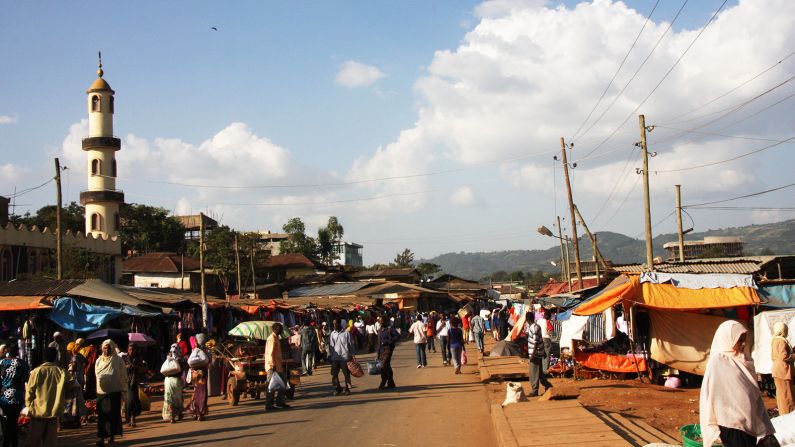
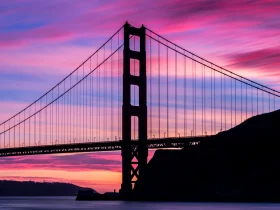

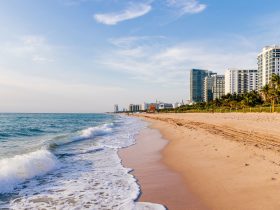
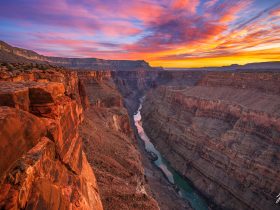
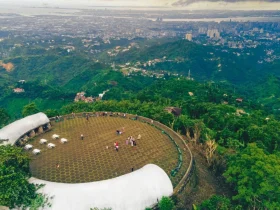
Leave a Review